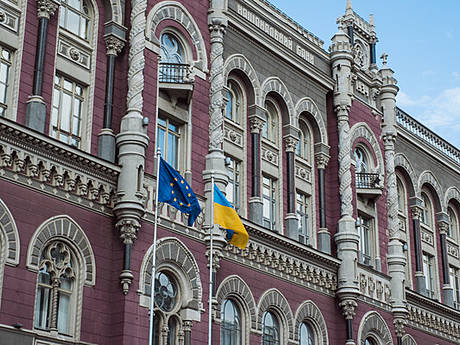
The NBU's key interest rate of 25% has been maintained for over a year. During this time, the profits of the banking sector have significantly increased, as they earn from National Bank deposit certificates and government bonds while being reluctant to invest in the real economy. In the first five months of the current year, Ukrainian banks made a profit of 53.59 billion hryvnias, the highest in the last five years.
Meanwhile, manufacturers are experiencing a shortage of working capital sources. A survey conducted by the Ukrainian League of Industrialists and Entrepreneurs in May revealed that 60% of businesses cannot take bank loans due to their high cost. The loss of access to credit is estimated at 150 billion hryvnias, resulting in a loss in production.
In early summer, the ULIE, together with the Economic Stability Anti-Crisis Staff, held a special meeting dedicated to the monetary and credit policy of the National Bank. Business associations, representatives from the Verkhovna Rada (Ukrainian parliament), National Academy of Sciences, and financial experts called for the correction of the policy and the return of the Ukrainian banking system to lending to the real economy.
Proposals in this regard have been directed to the President's Office, the Government, the National Bank, and the Verkhovna Rada. The ULIE continues to emphasize the need to implement the decisions developed during that meeting.
Currently, about 50% of the state budget expenditures are covered by external financing (loans, credits, grants). As of July, the gold and foreign currency reserves amount to 39 billion US dollars, the highest level since independence. However, this reliance on external financing poses a risk of further economic dependence, as there is little support for internal production, industrial development, and the creation of new jobs.
Moreover, the excessive tightness of the National Bank's monetary and credit policy has negatively affected the economy and citizens' income, leading to a decrease in purchasing power and an increase in business migration abroad.
The NBU is currently the only central bank that does not acknowledge that instability (due to Russian aggression and military actions) has significantly reduced the linkage of the interest rate to inflation. Furthermore, Ukraine remains the only country among developed nations where the key interest rate exceeds inflation. In reality, the weak impact of the interest rate on prices has been insignificant.
Inflation is primarily driven by fundamental factors: the monetary and commodity supply. During this time, the monetary base has increased by 168 billion hryvnias or 23%, reaching 907 billion hryvnias by the end of June. The continuous expansion of the money supply persists.
The expansion of the money supply has coincided with a contraction in the commodity supply. Since the introduction of the interest rate, GDP has decreased by 20%, or approximately 1 trillion hryvnias, which has further contributed to inflation.
Therefore, the ULIE predicts an inevitable return to worsening inflation, likely no later than autumn, if the 25% interest rate and difficulties in accessing credit for manufacturers persist.
The ULIE emphasizes the importance of the National Bank not using the inflation surge caused by emissions as a reason for another interest rate hike, as this cycle would continue. They demand that the National Bank and the government coordinate policies in this sphere and use global experience to stimulate economic activity through the expansion of accessible credit programs and reorienting the Ukrainian banking system from earning on deposit certificates to market investment in the economy.
Even the International Monetary Fund (IMF) acknowledges that typical rules regarding interest rates lose their effectiveness under atypical and unstable conditions. Moreover, the NBU's expenses on servicing certificates are estimated at 55 billion hryvnias, and a significant portion of external aid is wasted on compensating for these losses.
The Ukrainian League of Industrialists and Entrepreneurs and the Economic Stability Anti-Crisis Staff continue to monitor the situation and insist on a joint meeting with the Cabinet of Ministers, the National Bank, and the production sector to coordinate monetary and credit policies under the conditions of martial law and the urgent needs for recovery from the consequences of Russian aggression.